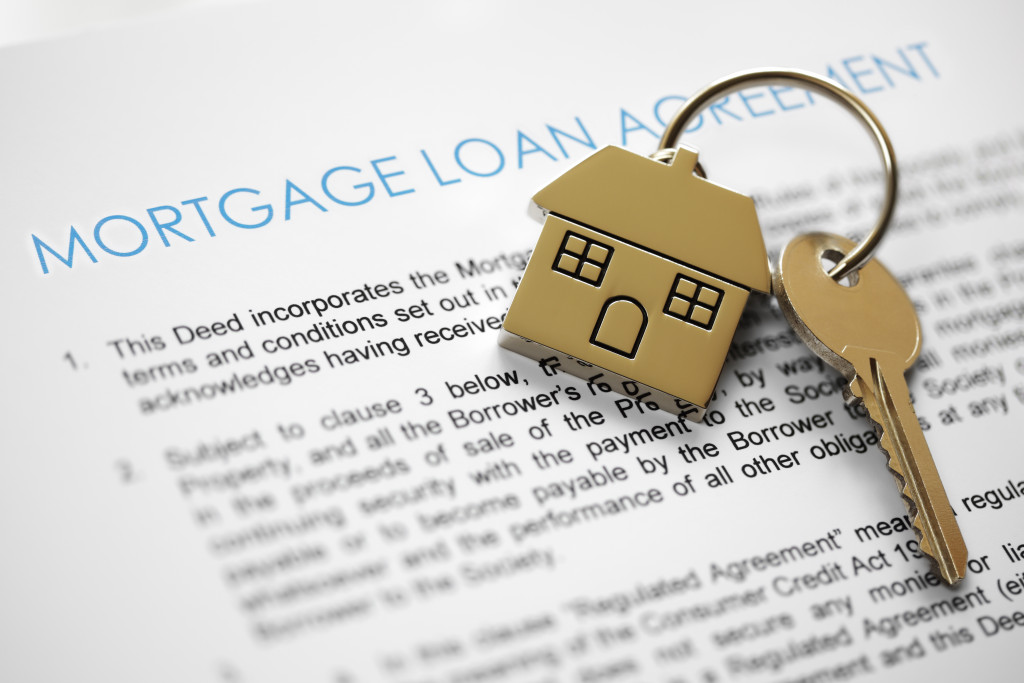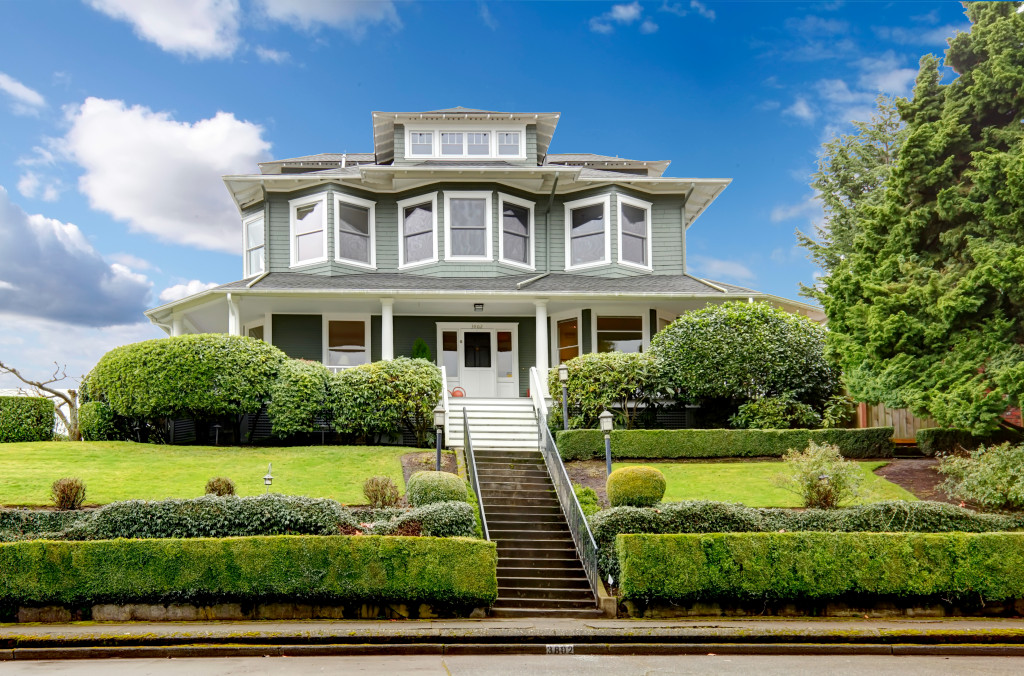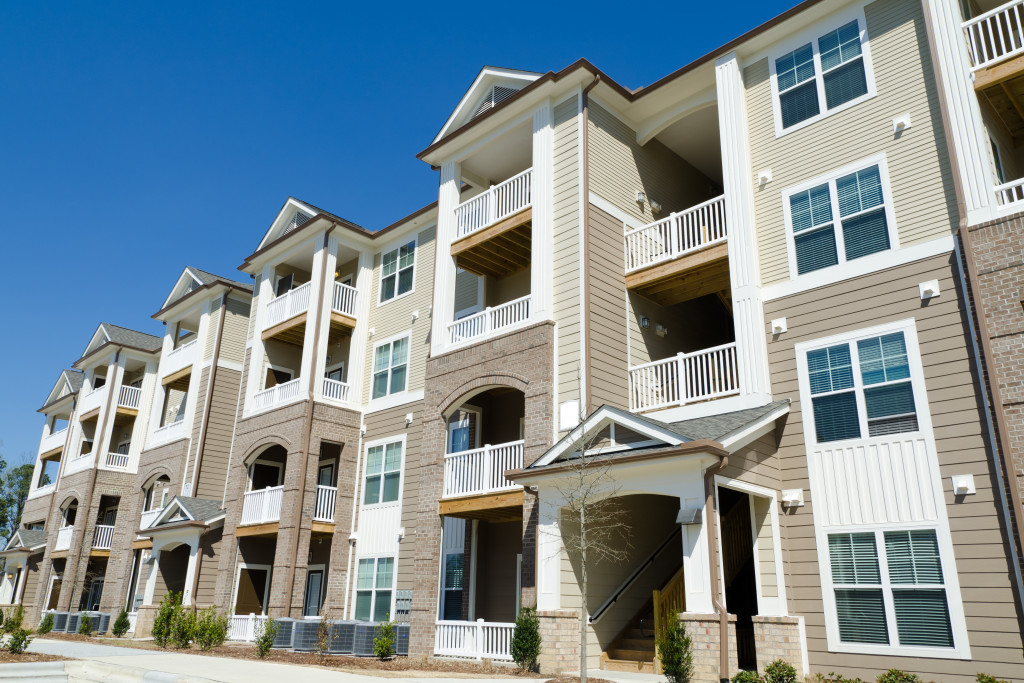- Define your investment strategy to determine which types of properties you will invest in.
- Build a strong financial foundation and secure financing if needed.
- Conduct thorough property research to identify the best investments.
- Develop a solid property management plan and consider hiring a professional company.
- Invest in curb appeal by adding outdoor features such as a patio, deck, or gazebo.
Starting a rental property business can be an exciting and lucrative venture. It allows you to generate passive income and build wealth over time. However, it’s important to approach this endeavor with careful planning and consideration. This guide will give you five essential tips to help you start a successful rental property business.
1. Define Your Investment Strategy
Defining your investment strategy is crucial before diving into the rental property market. Determine your financial goals and objectives for the business. Decide whether you want to focus on residential or commercial properties, short-term or long-term rentals, or a combination.
Research the local real estate market to identify areas with high rental demand and potential for appreciation. Additionally, consider property management, financing options, and risk management strategies. A clear investment strategy will guide your decisions and set you up for success in the rental property business.
Here are the types of investment strategies that must have:
Short-Term Rentals
Short-term rentals involve renting your property for a short period, usually one month or less. This type of rental is most common with vacation homes and other properties that cater to tourists and travelers. It typically requires more effort in terms of marketing and customer acquisition, as you’ll need to attract new renters each month. However, the shorter rental period can also lead to higher returns since you’ll be able to charge a premium for your property.
Long-Term Rentals
Long-term rentals involve renting out a property for an extended period — usually at least six months or more. This rental agreement is more common with residential properties and provides greater stability for the business since you have fewer vacancies and less turnover. The downside, however, is that you’ll typically charge lower rents than with short-term rentals.
Residential vs. Commercial Properties
When investing in rental properties, deciding whether your focus should be on residential or commercial properties is important. Residential properties are typically single-family homes, condos, apartments or townhomes. These types of properties are well suited to short-term and long-term rentals. On the other hand, commercial properties are typically used for business purposes — such as office buildings or retail stores — and may require additional costs and considerations that don’t apply to residential investments.
Property Management
Property management is an important part of any rental investment strategy. It involves overseeing the day-to-day operations of your rental properties, including tenant selection, rent collection, maintenance and repairs. This is a time-consuming process that can be difficult to manage alone. You may want to consider hiring a professional property management company or enlisting the help of family and friends. Property managers can take many of these tasks off your hands and give you more time to focus on growing your rental business.
2. Build a Strong Financial Foundation

A solid financial foundation is essential for starting a rental property business. Evaluate your current financial situation and determine the amount of capital you have available for investment. Consider consulting with a financial advisor to assess your financial goals, create a budget, and explore financing options. If needed, secure financing through mortgages, loans, or partnerships.
It’s also important to factor in additional costs such as property taxes, insurance, maintenance, and vacancies. Building a strong financial foundation will enable you to make informed investment decisions and weather any unexpected expenses that may arise.
3. Conduct Thorough Property Research
Conducting thorough property research is crucial when starting a rental property business. Take the time to identify properties that align with your investment strategy and meet the needs of potential tenants. Research key factors such as location, rental rates, property condition, and amenities.
Consider working with a real estate agent or property management company with expertise in the local market. They can provide valuable insights and help you find properties that offer the best return on investment. It’s important to perform due diligence by conducting property inspections, evaluating rental history, and researching market trends. Investing in properties with strong potential can attract quality tenants and maximize your rental income.
4. Develop a Solid Property Management Plan
Effective property management is crucial for success in the rental property business. Develop a solid property management plan that includes tenant screening procedures, lease agreements, rent collection processes, and maintenance protocols. Establish clear communication channels with tenants and respond promptly to their concerns or repair requests.
If you find yourself short on time or lacking the expertise to manage day-to-day operations effectively, it may be worth considering the option of hiring a property management company. They can handle tasks such as tenant screening, property maintenance, and rent collection, allowing you to focus on growing your business. A well-executed property management plan will help you maintain high tenant satisfaction and mitigate potential issues.
5. Invest in Curb Appeal

Investing in curb appeal is also essential for your rental property business. An attractive landscaping design can help differentiate your property from the competition and increase its market value. Investing in professional residential landscaping can provide the expertise and resources necessary to create a stunning outdoor space that will attract potential tenants. Professionals will assess your property, plan out a design that suits your needs, and manage the installation of plants, trees, and other elements.
You could also consider adding outdoor features such as a patio, deck, or gazebo to increase the value of your rental property. These additions can provide tenants with additional space for relaxation and socializing, making your property more attractive to potential renters. Investing in curb appeal is a great way to maximize the return on investment of your rental properties.
To Wrap It Up
Starting a rental property business can be a rewarding venture with the potential for long-term financial success. By defining your investment strategy, building a strong financial foundation, conducting thorough property research, developing a solid property management plan, and investing in curb appeal, you can set yourself up for success in the rental property market.
Remember to approach this business with careful planning, adapt to market trends, and prioritize tenant satisfaction. With dedication and smart decision-making, your rental property business can thrive and provide you with a steady stream of passive income for years.

